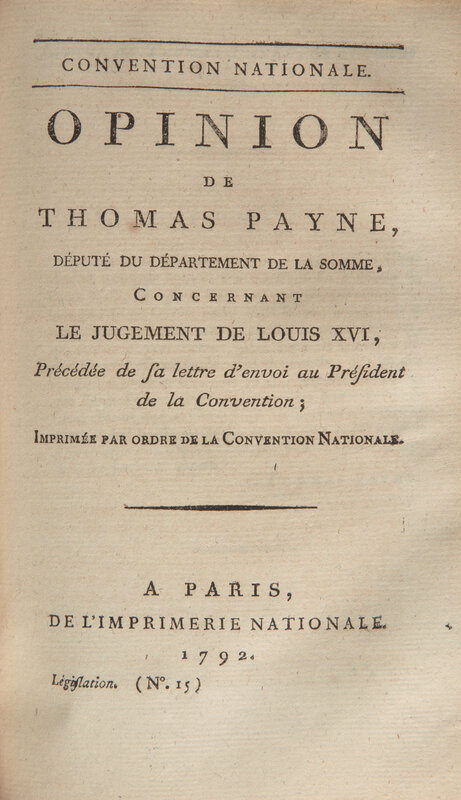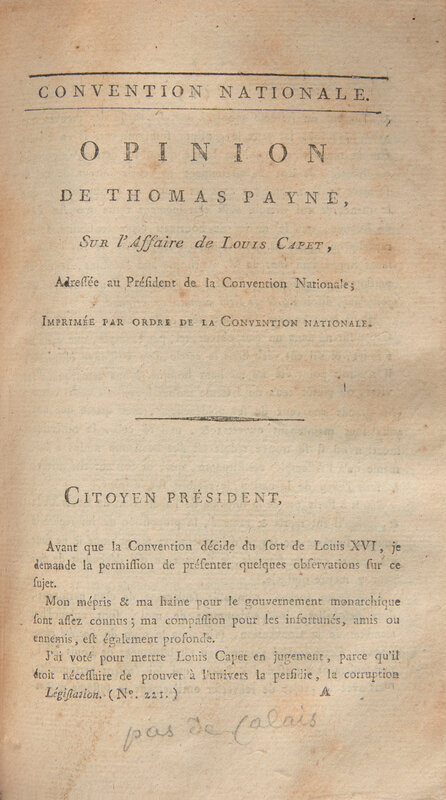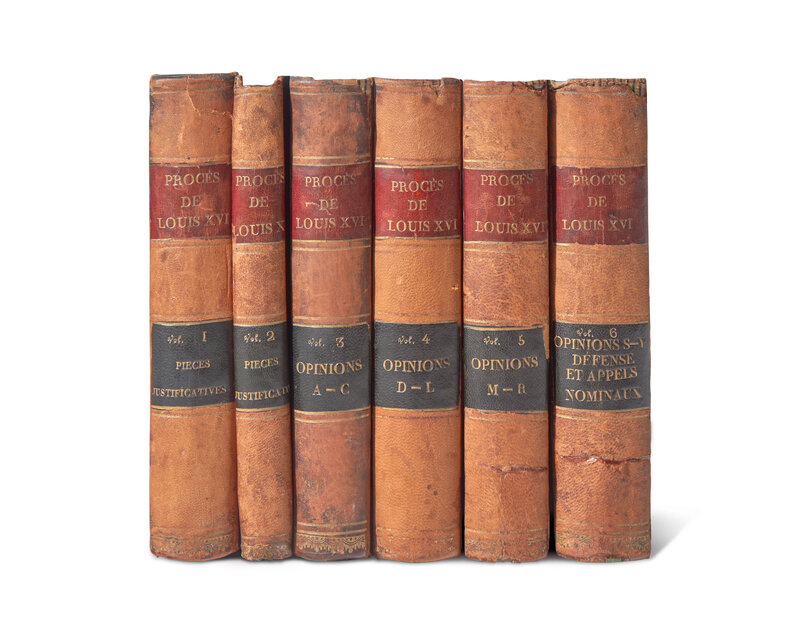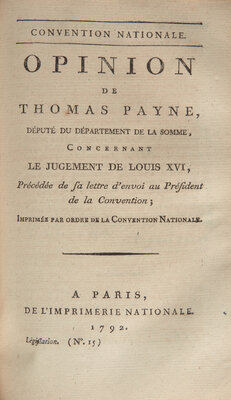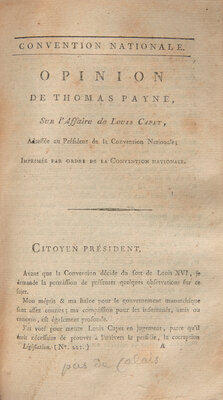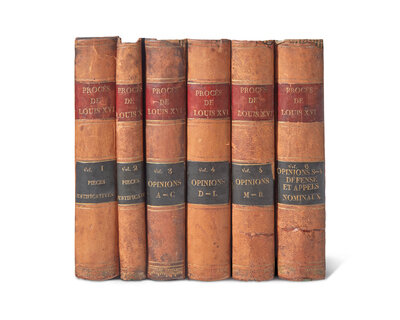Condition Report
Contact Information
Auction Specialist
Lot 27
[French Revolution] Paine, Thomas, et al. Group of 2 Works Regarding French King Louis XVI
Sale 2101 - Books and Manuscripts
Sep 10, 2024
10:00AM ET
Live / Philadelphia
Own a similar item?
Estimate
$1,500 -
2,500
Lot Description
[French Revolution] Paine, Thomas, et al. Group of 2 Works Regarding French King Louis XVI
Opinion de Thomas Payne Député du Département de la Somme, concernant le Jugement de Louis XVI, Précédée de sa lettre d'envoi au Président de la Convention... (and) Opinion de Thomas Payne, sur l'Affaire de Louis Capet, Addressé au Président de la Convention Nationale...
Paris: Imprimerie Nationale, 1792-(1793). 8; 10 pp. Two works, bound with 282 additional works, in six volumes. 8vo. Old three-quarter tan calf over paste-paper boards, red and black morocco spine labels, stamped in gilt, scattered wear and soiling to boards; all edges trimmed; scattered soiling to text; additional four-page pamphlet laid in third volume.
Paine's work is found in the fifth and sixth volumes.
A pair of rare works by Thomas Paine, which would lead to his imprisonment in France--bound within an extraordinary collection of French Revolutionary pamphlets concerning the fate of Louis XVI. Featuring printed pamphlets and letters from Robespierre, Marat, Lafayette, et al.
With the French Revolution well underway, Edmund Burke published a sharp critique of the events in France. Taken aback and sharply disagreeing with his friend's views, Paine published the first part of Rights of Man, which would become among the most published works of the 18th century with upwards of 200,000 copies printed. His publication of the even more revolutionary second part of Rights of Man following the seizure of the French King and his family would lead the British government to charge Paine with libel, forcing him to leave England for Paris in September 1792, never to return.
In Paris, Paine was granted honorary citizenship and was elected to serve in the national constitutional convention. Before, during, and following the trial of Louis XVI (Louis Capet), the opinions of Paine and his fellow deputies were separately published. Initially, the question was whether and how the monarch should be tried; and later, upon the verdict of guilty for high treason, what punishment should be sentenced. Paine believed that Louis XVI should receive a fair trial and if found guilty his sentence should be decided upon by the citizens of France. In his second Opinion, which followed the guilty verdict, Paine argued against the king's execution, favoring exile to America instead, so that the former King could see first-hand the benefits of democracy.
Although his democratic politics had long supported the revolutionary cause, his arguments against capital punishment for the French monarch would land him in prison, branded as a traitor during the Terror. With the help of James Monroe, Paine would eventually be freed in, November 1794, without ever having been tried.
This lot is located in Philadelphia.
